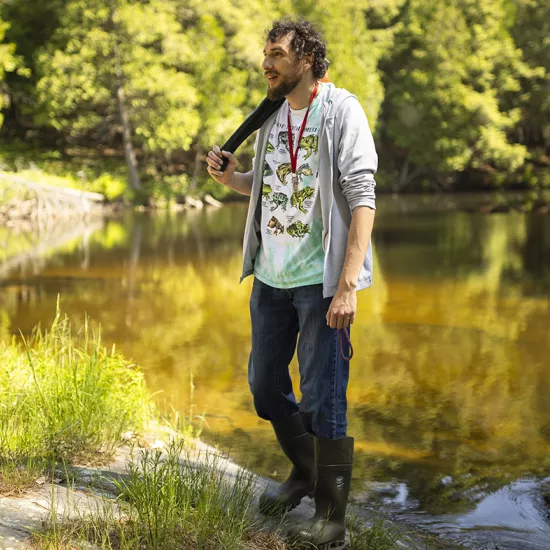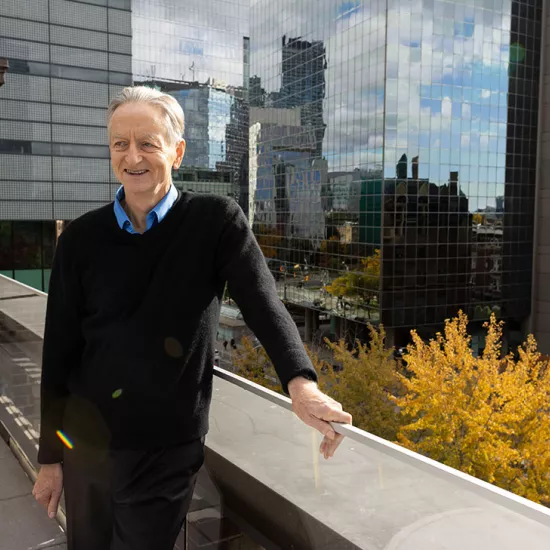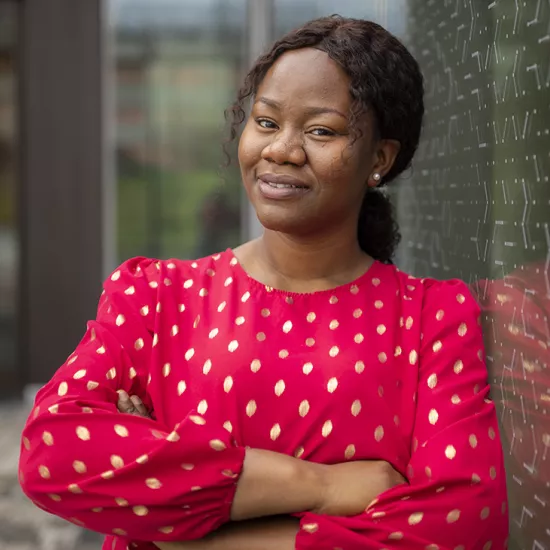UTM hosts climate strike-related events

As the United Nations prepares to host a Climate Action Summit in New York City from Sept. 21 to 23, the UTM community will join people worldwide who are concerned about climate change in promoting awareness of the work needed to keep the planet healthy.
In solidarity with young Swedish activist Greta Thunberg and the FridaysforFuture organization (fridaysforfuture.org), who have declared Sept. 20 to 27 as Climate Strike Week, UTM will be hosting events designed to raise awareness of the need for addressing climate change and creating a healthy, sustainable environment.
“Climate change is clearly one of the most, if not the most, important issues of our time,” says Professor Amrita Daniere, UTM’s vice-principal and dean. “UTM is committed to embracing sustainability both through research and teaching but also through how we manage and build the campus.

Climate Strike events at UTM have been planned collaboratively by faculty members, the library, the Blackwood Gallery and community partners, including the Riverwood Conservancy, in co-ordination with students in the MScSM (Masters of Science in Sustainability and Management) program, the Department of Visual Studies and others.
Throughout the week of Sept. 16, facilitators from the JustSeeds Artists’ Co-operative, in collaboration with the Blackwood Gallery, hosted banner-making workshops outside the main entrance to the Communication, Culture and Technology (CCT) Building, in preparation for the upcoming Climate Strikes promoted globally by FridaysforFuture. Guest artists Mary Tremonte and Jesse Purcell drew on the history of protest posters to instruct all comers in creating slogans, screen-printing, hand-painting and the use of iron-on adhesives.
Faculty offered climate change teach-ins on Sept. 19, drawing on their areas of expertise to highlight the impact climate change has already had on our lives and the ways it will affect us in the future if action is not taken. Professors from the departments of anthropology, biology, geography, political science, sociology and visual studies were speakers at these open-air sessions, held in the DV/CCT courtyard.
The coming week offers the UTM community more opportunities to learn about climate change in preparation for taking appropriate action. On Sept. 23 at 5 p.m., three experts will deliver TED-style talks about climate change, with a group discussion to follow, as well as sustainable refreshments. The speakers are Jae Page, a PhD student and graduate of UTM’s Master of Science in Sustainability Management (MScSM) program; Professor John Robinson, U of T’s presidential advisor on environment, climate change and sustainability; and Pegeen Walsh, executive director of the Ontario Public Health Association.
The Riverwood Conservancy, one of UTM’s community partners, brings Meltdown: A Climate Change Summit to campus on Sept. 24 at 6:30 p.m. in the Maanjiwe nendamowinan building. The summit explores how climate change is/will affect your health and considers ways to combat it. Following a keynote address by Dianne Saxe, Ontario’s former commissioner of the environment, a panel of physicians, healthcare administrators and experts will highlight how climate change threatens individual health, the economy, ecology, and our society, and what needs to be done to address the growing challenges of life on a hotter planet.
Official Climate Strike Week events on campus will conclude on Wed., Sept. 25 with an outdoor showing of the film, Anthropocene: The Human Epoch, a documentary produced by the award-winning team of Jennifer Baichwal, Edward Burtynsky and Nicholas de Pencier. Sitting on their blankets in the North Field, community members can watch the visual evidence of what an international body of scientists dub the Anthropocene Epoch, the profound and lasting changes humans have made to the Earth.
“Sustainability is a fundamental commitment at UTM, both in our academic plan and in our operations,” says Daniere, who encourages the UTM community to become more educated about and active in combatting climate change.



